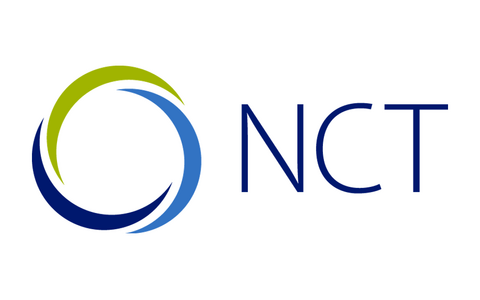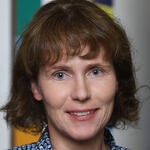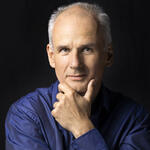Joining Forces Against Cancer
Joint Press Release of the Charité, the BIH, and the Max Delbrück Center
The NCT is a long-term collaboration with the Deutsches Krebsforschungszentrum in Heidelberg and an excellent partner of the Charité – Universitätsmedizin and other outstanding research institutions in Germany. Since 2019, as part of the National Decade against Cancer, the Federal Ministry of Education and Research (BMBF) has been supporting the objective of making results from cancer research available to those affected more quickly. The Ministerium has now confirmed the expansion of the NCT to include four new sites, which means that the translational consortium now comprises six sites around Germany.
At the NCT, physicians work closely with researchers to facilitate cancer therapies tailored to individual conditions. The new sites will now be developed further with the additional funding. Besides Berlin, the sites in Cologne/Essen, Tübingen/Ulm/Stuttgart, and Würzburg/Erlangen/Regensburg emerged successful from the competitive application procedure. These four new NCT sites are intended to enable a larger number of oncological patients to obtain access to innovations in personalized medicine at an early point in time.
The NCT sites in Berlin have developed three collaboration partners: the Charité, the Berlin Institute of Health at the Charité, and the Max Delbrück Center. The joint objective: sustainably advancing the most modern clinical cancer research in Germany and thus continuously improving the treatment and quality of life of cancer patients.
Cutting-Edge Research and Care under One Roof
Professor Ulrich Keilholz, Head of the Charité Comprehensive Cancer Center (CCCC) and a coordinator of the Berlin NCT application, is pleased about this new step: “The Charité with its CCCC already provides comprehensive care for patients and conducts clinical and translational cancer research today. Each patient is given an individual treatment plan that has been developed in an optimized manner in an interdisciplinary team. In addition, we also facilitate participation in clinical studies. As a future NCT site in Berlin, we will be able to conduct research and provide treatment even more successfully and also develop our expertise further.”
The co-coordinator Professor Angelika Eggert manages the Department of Pediatrics, Division of Oncology and Hematology at the Charité and is the spokesperson for the Berlin site in the Deutsches Konsortium für Translationale Krebsforschung (German Consortium for Translational Cancer Research, DKTK). With her team, she conducts research on new targeted molecular therapies and immunotherapies especially for children with cancer. “The body’s own immune system plays a decisive role in the battle against cancer. In collaboration with colleagues on site in Berlin, we can achieve decisive advances. Particularly in rather rare childhood cancer cases, we will greatly benefit from the Germany-wide cooperation with the other NCT sites.” Professor Lars Bullinger, Director of the Medical Clinic, Division of Hematology, Oncology, and Tumor Immunology on the campus of the Virchow-Klinikum, also plays a leading role. “We are pleased about the opportunity to bring together cutting-edge research, the most modern patient care, and direct contact with patient representatives together under one roof in the future in a new NCT building.”
The BIH Chair of Clinical Translational Medicine, Professor Christof von Kalle, manages the Clinical Studies Center of the BIH and Charité. Before coming to Berlin, he cofounded the NCT in Heidelberg and directed it for ten years. He also helped develop the concept for the NCT site in Berlin. “Based on my many years of NCT experience in Heidelberg, I know how decisive the close interconnection of research and clinic, but also the collaboration of various disciplines is in the battle against cancer. At the same time, we must also continue to advance digitization so that the masses of data that accrue in research and the treatment of thousands of cancer patients can provide the greatest possible benefits. As an NCT site in Berlin, we can master these challenges.”
The Concept: Cell-Based Cancer Medicine
The Max Delbrück Center is one of the leading biomedical research centers in the world. Its scientists investigate the molecular foundations of diseases and health with the newest technologies so as to thus pave the way for the medicine of the future. In cancer medicine, they develop, among other things, new immunotherapies: the CAR-T cell therapies of Dr. Uta Höpken and her colleagues are already being clinically tested at the Charité, and there is also extensive expertise on T-cell therapies against solid tumors. Moreover, key innovative technologies such as 3D single-cell analysis, proteomics, and metabolomics are being implemented in new medical concepts with the aid of artificial intelligence.
Through the close collaboration with the Charité and the BIH, we would like to bring our insights to patients as quickly as possible. It’s about the personalized oncology of the future.
Professor Maike Sander, Scientific Director of the Max Delbrück Center, is also very happy about the funding. “Berlin will become an excellent site for the expanded National Center for Tumor Diseases: Everything comes together perfectly here. For us at the Max Delbrück Center, this means that we can further advance our research and expertise in the field of immunotherapy, carcinogenesis, and cell-based cancer medicine. And through the close collaboration with the Charité and the BIH, we would like to bring our insights to patients as quickly as possible. It’s about the personalized oncology of the future.”
The unique expertise of the three cooperation partners makes Berlin in particular into an internationally outstanding site for systematic medicine and clinically applied single-cell technologies. Based on these successes, Professor Nikolaus Rajewsky, Director of the Berlin Institute for Medical Systems Biology (MDC-BIMSB), and the clinical NCT team are developing a pioneering future concept for cell-based cancer medicine. In addition to the clinical programs, the innovations at the NCT thus consist of three important topics: precision oncology, cellular immunotherapy, and digital medicine.
55,000 Newly Diagnosed Cancer Cases per Year
The CCCC is coordinating the development of the NCT partner sites in Berlin. All the relevant specialist areas in cancer medicine as well as patient spokespersons are thus represented in the steering committee of the NCT Berlin. A separate building on the future clinical research campus at the Charité Campus Virchow-Klinikum is in planning. The most modern research laboratories, an outpatient clinic, and an information center for cancer patients are being created there. The BIH Charité Clinician Scientist Program as well as numerous other further education opportunities make Berlin an attractive location for recruiting young talents in cancer research. Besides the capital, with the population of Berlin, Brandenburg, and Saxon-Anhalt, with a total of 8.6 million inhabitants, the catchment area of the NCT Berlin will extend over roughly one tenth of Germany, with an anticipated more than 55,000 newly diagnosed cancer cases per year.
The newly expanded NCT will develop sustainable shared research and collaboration structures. It brings together the existing national potentials and thus gives rise to synergies that advance the transfer of innovations to patient care, the health system, the economy, and society. It is only as a result of the significant investment of the BMBF that it is possible to realize this “one NCT” initiative. In its overall development, the expanded NCT will be financed with a total of roughly 100 million euros per year from the BMBF and from the respective federal state in a ratio of 90 to 10. Furthermore, by means of its financing, it enables the home states to erect a patient-oriented NCT building at each of the four new sites.
Further Information
- Press release of the BMBF
- The National Center for Tumor Diseases
- The Charité Comprehensive Cancer Center
- Berlin Institute of Health at the Charité
- DKFZ press release
- Portrait of Nikolaus Rejewsky: The Visionary
- Berlin Institute for Medical Systems Biology of the Max Delbrück Center
- Single-Cell Approaches for Personalized Medicine
- Portrait of Uta Höpken: The Trainer
- Press release: Strengthening the immune response to blood cancer
- Press release: Immunotherapy may get a boost
Contacts
Markus Heggen
Press officer
Charité – Universitätsmedizin Berlin
+49 (0)30 450 570 400
presse@charite.de
Jana Schlütter
Editor, Communications Department
Max Delbrück Center
+49-(0)30 9406 2121
jana.schluetter@mdc-berlin.de or presse@mdc-berlin.de
- About the NCT
-
-
With the establishment of the Nationales Centrum für Tumorerkrankungen (NCT) in Heidelberg as a joint institute, the Deutsche Krebsforschungszentrum (DKFZ), the Universitätsklinikum Heidelberg (UKHD), and Deutsche Krebshilfe (German Cancer Aid) established the first Comprehensive Cancer Center in Germany in 2003. The goal of the NCT is to transfer promising approaches from cancer research to clinics as quickly as possible and thus enable them to benefit patients. This applies to both diagnosis and treatment, in follow-up care, or prevention. The outpatient tumor clinic is the core component of the NCT. Here, patients benefit from an individualized therapy plan created by a multidisciplinary panel of experts, so-called tumor boards. Participation in clinical studies provides access to innovative therapies. The NCT is therefore a trailblazing platform for the transfer of new research results from the laboratory to the clinic. The NCT also collaborates with self-help groups and supports them in their work.
The four new sites for the expansion of the NCT were selected the fall of 2020 based on the recommendation of an international committee of experts. The DKFZ and the two existing and all the new sites then developed a comprehensive joint strategy concept and a supplementary implementation plan. A large number of leading scientists, oncologists in all specializations, and patient representatives at all sites participated in the development of the concept. A subsequent international expert opinion confirmed the joint strategy and the plan for its implementation, so that the BMBF has now given a green light to the development of the new sites and the Germany-wide collaboration in the expanded NCT.
- About the DKFZ
-
-
The Deutsche Krebsforschungszentrum (DKFZ) with its more than 3,000 employees is the largest biomedical research institution in Germany. At the DKFZ, over 1,300 scientists conduct research on how cancer arises, record risk factors for cancer, and search for new strategies to prevent people from being diagnosed with cancer. They develop new methods with which tumors can be diagnosed more precisely and cancer patients can be treated more successfully. At the Krebsinformationsdienst (Cancer Information Service, KID) of the DKFZ, affected individuals, interested citizens, and specialists receive individual answers to all questions surrounding the topic of cancer.
The DKFZ manages the Nationales Centrum für Tumorerkrankungen (NCT) at the sites in Heidelberg and Dresden and, in addition, at the Hopp-Kindertumorzentrum KiTZ in Heidelberg in cooperation with partners from university clinics. In the Deutsches Konsortium für Translationale Krebsforschung (DKTK), one of six German centers for health research, the DKFZ maintains translation centers at seven university partner sites. The combining of excellent university medicine with the high-level research of the Helmholtz-Zentrum at the NCT and DKTK sites is an important contribution to transferring promising approaches from cancer research to clinics and thus improving outcomes for cancer patients. The DKFZ is financed up to 90 percent by the Bundesministerium für Bildung und Forschung and up to 10 percent by the State of Baden-Württemberg, and is a member of the Helmholtz-Gemeinschaft Deutscher Forschungszentren (Helmholtz Association of German Research Centers).
- The Max Delbrück Center
-
-
The Max Delbrück Center for Molecular Medicine in the Helmholtz Association (Max Delbrück Center) is one of the leading international biomedical research centers. The Nobel Prize Winner Max Delbrück, who was born in Berlin, was one of the founders of molecular biology. At the sites in Berlin-Buch and Berlin-Mitte, researchers from roughly 70 countries analyze the human system—the foundations of life from its smallest building blocks to cross-organ mechanisms. When one understands what steers or disrupts the dynamic equilibrium in the cell, an organ, or in the body as a whole, it is possible to prevent illnesses, diagnose them at an early point in time, and stop them with tailor-made therapies. The insights from basic research should benefit patients quickly. The Max Delbrück Center thus promotes spinoffs and collaborates in networks. It maintains particularly close partnerships with the Charité – Universitätsmedizin Berlin at the joint Experimental and Clinical Research Center (ECRC) and the Berlin Institute of Health (BIH) at the Charité as well as at the Deutsches Zentrum für Herz-Kreislauf-Forschung (German Center for Cardiovascular Research, DZHK). The Max Delbrück Center has 1800 employees. The Center, which was established in 1992, is financed up to 90 percent by the Federal Government and up to 10 percent by the State of Berlin.









